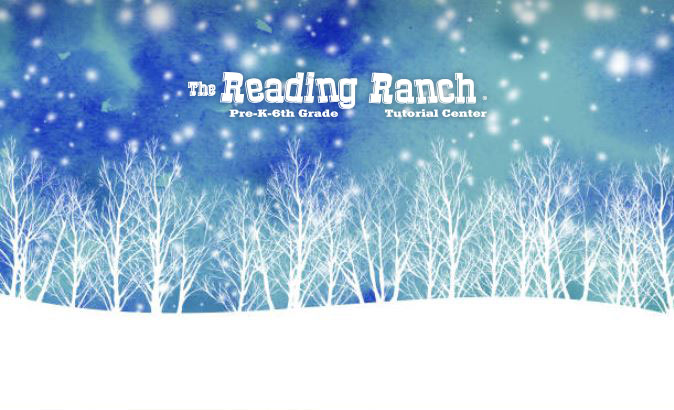How Dyslexia Affects the Ability to Spell
What is Dyslexia?
Dyslexia is a neurological disorder that affects reading and spelling skills. Dyslexia occurs when the brain does not accurately process information received from the eyes. This can cause difficulty with phonemic awareness, which can hear, identify, and manipulate the individual sounds in words. Phonemic awareness is critical for learning to read.
Dyslexia is one of the most common types of learning disabilities. It can impact reading, writing, spelling, and other language-related skills. There are many misconceptions about dyslexia that often lead to children being incorrectly diagnosed with ADHD or ADD. The truth is, a dyslexic person has no problem paying attention; they just struggle to process what they see on the page because their brains don’t decode written words in a typical way. Dyslexia occurs in people of all intelligence levels, and there is no single cure for it.
This blog post will describe some simple ways to help your child with dyslexia improve their spelling ability!

Dyslexia and Spelling
One of the most common symptoms of dyslexia is difficulty with spelling. This can be caused by several things, including problems with phonemic awareness, poor vocabulary skills, and problems with word decoding.
People with dyslexia often misspell words because they hear them differently in their heads than how they are spelled. They might also have trouble breaking words down into syllables, which can cause problems with endings and plurals. For this reason, you must begin working on spelling instruction early in a child’s education!
How do children learn to spell?
Children learn to spell by being introduced to phonics, memorizing words from books, and writing them on paper. They are taught how letters represent sounds in a word.
In school, children practice spelling words with their peers who correct them when they make mistakes; the teacher will also monitor students as they write down words from memory or off a list. Eventually, this leads to reading and writing comprehension, which we primarily focus on for the rest of our education.
Language Development
Learning language development is like learning words. As you progress, you will notice patterns and repeated sequences of letters. An essential spelling skill is developed if people understand how words are put together.

Why does dyslexia affect spelling?
People with dyslexia have problems with phonemic awareness, which is the ability to hear and identify sounds in words. This makes it difficult for children to recognize patterns when they are learning vocabulary words.
For dyslexic students, learning how to spell is more complicated. Dyslexia causes difficulty recognizing and understanding the individual sounds of spoken language and linking these sounds together to form words. This can make it difficult for people with dyslexia to spell correctly.
How common are spelling difficulties?
Many dyslexic students have difficulty reading and spelling. Since dyslexia is a cognitive disability that is difficult to understand, many schools simply don’t understand the condition. This can lead to frustrations with the student, parents, and school.
Spelling difficulties happen in many children but at a higher rate in dyslexics
Many children, whether they have dyslexia or not, have difficulties. However, children with dyslexia tend to have more spelling problems due to the condition. However, with the proper instruction and accommodations, most dyslexic people can learn to read and write well enough for daily activities. But with proper guidance, they have achieved essential spelling skills.
Phonics is vital for children with dyslexia or dyslexic tendencies.
Phonics is a systematic way of teaching children how to read and spell. It breaks up words into groups of letters pronounced in the same way, called phonemes. Phonograms are the letter combinations that represent each sound. For example, “th” represents /θ/ as in “think” or /ð/, as in “thee”.
Children with dyslexia may learn better when taught phonics and basic language skills because it helps them match sounds with symbols on paper more quickly than if they were just taught whole words at once.
Many dyslexic children have trouble recognizing different letters and matching them to their corresponding sounds; phonics makes this task easier.
Children struggling with reading and spelling should be given phonics instruction to help them learn how sounds correspond to letters in written words. This will help them to better match sounds with symbols, and teaching spelling and spelling rules will be much easier when the student understands phonics.
Please check out my blogs on phonics and sight words for more information.
Other issues that can interfere with spelling
Children with dyslexia may have difficulty spelling because of other learning disabilities such as auditory processing disorder, poor working memory, and visual perception. Dysgraphia is also common in children who struggle to write down on paper what they want to say, both spoken and written words.
How to help teach spelling to your child at home
Practice
As with any skill, it’s vital to practice spelling with your child at home. Practice taking quizzes, and writing correct spellings, have them write words accurately on paper or a whiteboard, not on their phone or computer.
Several things can be done to help teach spelling to a dyslexic child. One is to provide the child with lots of practice. You can also use phonetic spellings to break words down into syllables. Start with a few irregular words, or sight words to build confidence.
Test students spelling skills
Use mock practice tests at home where you give them one to three words and a time limit and see how they do.
Memorization
It may also be helpful to have the child read and remember words with a partner and then have the pair repeat those words back to each other. This can be challenging for students with dyslexia, so go easy and work into more complex spelling words..
Make sure to give the child positive reinforcement
when they spell a word correctly. This will help to boost their confidence and encourage them to continue trying. With some patience and practice, your child will be improving before you know it.
Writing – Using the words as part of a sentence/paragraph
In the modern world, students must learn how to spell words for their writing. Without this skill, they will have difficulty communicating and submitting assignments on time which could lead them to failure if not handled correctly.
The importance of knowing proper word choice cannot be overstated as well. A classroom spelling program doesn’t always reflect what’s most important in life! Spelling for dyslexia can be challenging, but it can be overcome with proper support and techniques. It may seem difficult at first, but with practice comes mastery.
Patience
Remember that dyslexia is not a disease and is simply a condition. Many very successful and talented people have dyslexic tendencies! People with dyslexia can learn; they just learn differently. Most students have achieved basic spelling skill using these techniques.
If you suspect your child may have dyslexia
Contact your school
The RTI process can help identify students for special education services and dyslexia programs. Suppose schools are not using this law to evaluate children. In that case, they may give them an evaluation that diagnoses their specific learning disabilities, which qualify them as needing extra attention in schoolwork or relating with other people at home, etc.. This assessment should include tests of strengths & weaknesses, so teachers know exactly what areas need more work!
Contact your school district and inquire about their testing and if your child may qualify to have a dyslexia screening. If the school does not offer this test, or the waiting time is excessive, The Reading Ranch Diagnostic and Assessment Services also provides these services.
In Conclusion
Dyslexia can be a debilitating disorder. It is difficult to diagnose until the child reaches school age. Contact us today for more information about The Reading Ranch’s programs for individuals struggling with dyslexia or other learning disabilities. If you or someone you know has a child who struggles with reading and spelling, share this blog post to provide insight into how dyslexia affects their ability to spell words correctly.
Additional resources
Parent Guide


